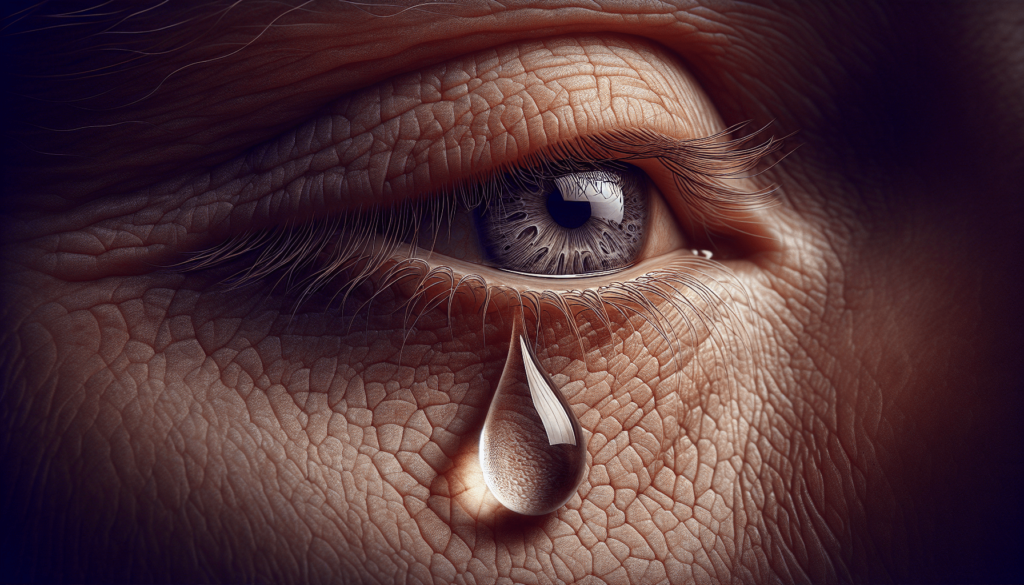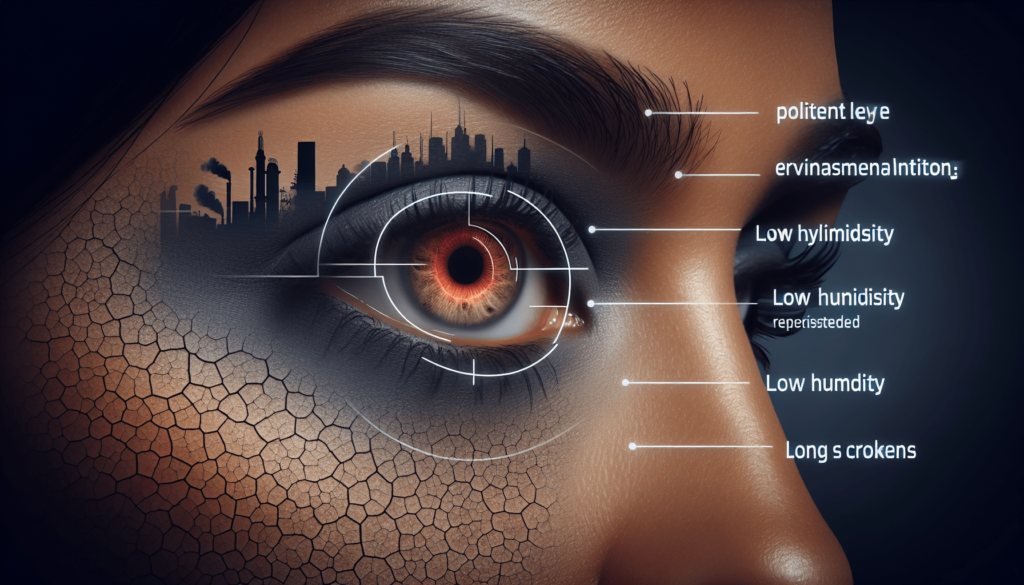In this article, we will explore the relationship between hormonal changes and dry eyes. Hormonal fluctuations, such as those experienced during menopause or pregnancy, can impact the production of tears and the overall health of the eyes. Understanding how hormones influence eye health is crucial for managing dry eye symptoms and seeking appropriate treatment. Let’s delve into the fascinating world of hormones and their effects on our eyes.
What Role Do Hormonal Changes Play In Causing Dry Eyes?
Have you ever noticed that your eyes feel dry and irritated, especially during certain times of the month? Hormonal changes can actually play a significant role in causing dry eyes. In this article, we will explore how fluctuations in hormones can impact your eye health and what you can do to alleviate symptoms.
Understanding the Connection Between Hormones and Dry Eyes
Let’s delve into the science behind how hormonal changes can lead to dry eyes. Hormones are chemical messengers in the body that regulate various functions, including tear production. Estrogen, progesterone, and testosterone are some of the key hormones that can influence the quality and quantity of tears produced by the eyes.
Dry eye syndrome occurs when the eyes do not produce enough tears or when the tears evaporate too quickly. Hormonal fluctuations, such as those experienced during menstruation, pregnancy, menopause, or while taking certain medications, can disrupt the delicate balance of tear film, leading to dry eyes.
Hormonal Changes During Menstruation
If you are a menstruating individual, you may notice that your eyes feel drier and more uncomfortable in the days leading up to your period. Estrogen and progesterone levels fluctuate throughout the menstrual cycle, which can affect tear production. Estrogen is known to have anti-inflammatory properties and can help maintain the health of the ocular surface, while progesterone can decrease tear production.
During the premenstrual phase, you may experience an increase in dry eye symptoms due to hormonal imbalances. It is essential to stay hydrated, use artificial tears, and practice good eye hygiene to alleviate discomfort during this time.
Hormonal Changes During Pregnancy
Pregnancy is a time of significant hormonal changes, which can have both positive and negative effects on the body, including the eyes. Some pregnant individuals may experience an increase in tear production due to hormonal fluctuations, while others may develop dry eyes.
Estrogen levels rise significantly during pregnancy, which can improve tear film stability and reduce dry eye symptoms for some individuals. However, hormonal changes can also lead to increased water retention in the body, which may affect tear quality and evaporation rate.
If you are pregnant and experiencing dry eyes, it is crucial to consult with your healthcare provider before using any over-the-counter eye drops. They can recommend safe and effective treatments to manage dry eye symptoms during pregnancy.
Hormonal Changes During Menopause
Menopause is a stage in a person’s life when hormonal fluctuations can have a profound impact on various bodily functions, including tear production. As estrogen levels decline, the ocular surface may become dry and inflamed, leading to symptoms of dry eye syndrome.
Postmenopausal individuals are at a higher risk of developing dry eyes due to hormonal imbalances. The decrease in estrogen can affect the quality of tears produced by the eyes, making them more prone to evaporation and discomfort. Using lubricating eye drops and maintaining good eye hygiene can help alleviate dry eye symptoms during menopause.
Hormonal Changes Due to Medications
Certain medications, such as hormone replacement therapy, oral contraceptives, and antihistamines, can also impact tear production and quality. Hormonal therapies that alter estrogen and progesterone levels can lead to changes in the composition of tears, making them less effective at lubricating the eyes.
If you are taking medications that affect hormonal balance and are experiencing dry eye symptoms, talk to your healthcare provider about alternative treatment options. They may be able to adjust your medication regimen or recommend additional interventions to manage dry eyes effectively.
Managing Dry Eyes Caused by Hormonal Changes
Now that you understand the role of hormonal changes in causing dry eyes, let’s explore some practical tips for managing this common condition. Here are some strategies you can incorporate into your daily routine to alleviate dry eye symptoms:
-
Stay Hydrated: Drinking an adequate amount of water can help maintain tear production and keep the eyes lubricated.
-
Use Artificial Tears: Over-the-counter lubricating eye drops can provide temporary relief from dry eye symptoms and help replenish moisture in the eyes.
-
Practice Good Eye Hygiene: Avoid rubbing your eyes, as this can further irritate the ocular surface. Use a clean, damp cloth to gently cleanse the eyelids and lashes.
-
Protect Your Eyes: Wear sunglasses outdoors to shield your eyes from harmful UV rays and reduce evaporation of tears.
-
Take Breaks from Screens: If you spend long hours in front of a computer or digital device, take frequent breaks to rest your eyes and blink regularly.
By incorporating these simple strategies into your daily routine, you can help manage dry eye symptoms caused by hormonal changes effectively.
Conclusion
Hormonal changes can have a significant impact on your eye health, leading to dry eyes and discomfort. By understanding the connection between hormones and tear production, you can take proactive steps to manage dry eye symptoms and improve the overall health of your eyes. Remember to consult with your healthcare provider if you experience persistent dry eye symptoms or need guidance on appropriate treatment options. Take care of your eyes, and they will continue to keep you seeing clearly for years to come.



